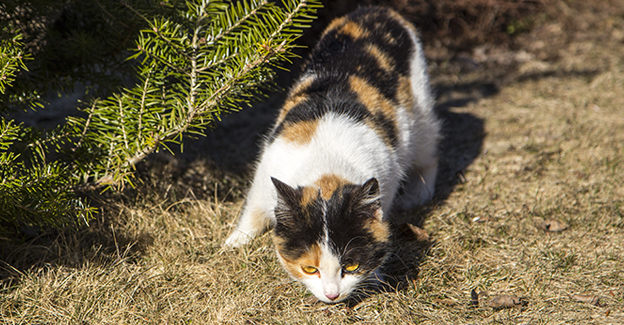Mosquitos Can Be Deadly to Your Pets

Visiting my in laws in Arkansas was often an educational and entertaining pastime. While driving at dusk, I learned the large splats on my windshield, resembling an Oklahoma hail-storm with ice as large as baseballs, was just, the “skeeters.” On one occasion relaxing in my in-laws den, I heard the strangest noise. It sounded like the neighbors house was being doused with a fire hose. “Did anyone hear that noise?” I asked. My Mother in law, as syrupy sweet as Mayberry’s Aunt B, chimed in, “Oh sweetie, that’s just the skeeter truck.” I peered through the shutters outside to witness a “skeeter truck” creeping down the street. It was a large city truck, with what looked like a gun sitting on top of a World War II tank. It was rotating and spraying a chemical to help control the hummingbird size mosquitos inhabiting the area.
Big things can come in small packages and these insects pack a dangerous punch. Mosquitos are considered one of the most deadly threats to humans on the planet, transmitting Malaria, West Nile virus, Elephantiasis, Dengue Fever, Yellow Fever and now Zika. They kill over one million people per year, due to Malaria alone. But did you know mosquitoes are a very dangerous threat to our pets?
When the spring rains depart and the summer heat and humidity arrives, the population of annoying mosquitos begin to grow. Mosquitos can transmit heartworms to our pets with a single bite. Indoor and outdoor dogs should be protected. If you live where mosquitoes thrive your dog is at high risk for heartworms. When a mosquito bites a dog or cat, the infective larvae are deposited onto the surface of the animal’s skin and enter through the mosquito’s bite wound. Once inside, it takes approximately six months for the larvae to mature into adult heartworms. Signs of heartworm disease are a mild, persistent cough, fatigue, decrease of appetite, weight loss and reluctance to exercise. As this preventable disease progresses, heart failure may develop and the appearance of a swollen belly may be evident. Heartworms can grow up to a foot long, and can damage the heart, lungs and blood vessels. In cats, most larvae will not survive to adult stage, but can still cause damage to the respiratory system. Heartworm disease can result in permanent health issues and is potentially fatal, but it is preventable.
Each pet owner should have their pet tested for heartworms annually. Preventative treatment is only effective if utilized prior to contraction of heartworms. Obtaining the correct diagnosis is critical for determining the correct treatment plan for your pet. If your veterinarian finds your dog does not have heartworms, he/she can start your dog on a preventative treatment plan. Doing so is highly cost-effective. In the Broken Arrow area, depending on the size of the dog, the treatment for heartworms averages $500-600 dollars for a small dog and upwards of $1000 dollars for larger dogs. Complications may occur, further increasing the treatment costs. Treatment for heartworms is difficult on the dog, as movement must be restricted and often involves painful injections. Prevention medication is on average $100-200 dollars per year. In our region, you are gambling with your pet’s life without heartworm preventative.
Protect your four legged family members by providing them with a preventative heartworm program. Don’t forget to help control the pet population and keep our shelter empty. Spay and neuter your pets!
